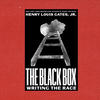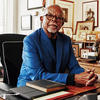Date:
Wednesday, April 27, 2022, 4:00pm
Location:
Barker Center, Thompson Room, 12 Quincy Street, Cambridge, MA & On Zoom
Ryan Hanley, Historian of Race and Slavery in Britain, University of Exeter
Part of the Nathan I. Huggins Lecture Series
These lectures will explore the idea of race and insurrection in the British Atlantic by following the threads of the life and work of the Jamaican-Scottish radical Robert Wedderburn. Professor Hanley has uncovered new material on Wedderburn, and as the bicentenary of the publication of his 1824 Horrors of Slavery approaches, it is a good time to share it. The lectures are going to talk about some of the unstable tensions between various ideas about insurrection/uprising and emergent ideas around ‘race’ in the British Atlantic over the course of Wedderburn’s life, c.1762-c.1835.
- In the first lecture, Wedderburn’s upbringing on a plantation in Kingston in the wake of Tacky’s Revolt will be explored, focusing especially on his grandmother, the Obeah practitioner Talkee Amy, who he saw flogged for supposedly bewitching a ship. Additionally, Wedderburn’s childhood and teenage years will be discussed, bringing in some ideas about the role of rebellious and unruly children in our picture of resistance and insurrection in the British Caribbean.
- The second lecture will include an examination of Wedderburn’s first few decades in mainland Britain, taking in his paternal family’s Jacobite history and the ‘tense and tender ties’ of kinship between Scottish insurrectionists and their colonialist, slaveholding or indeed enslaved children and grandchildren. Professor Hanley will explore the racialized concept of ‘legitimacy’ and what it meant to Wedderburn during his rise to prominence in London’s ultra-radical underworld during the Peterloo years.
- The final lecture will be a discussion of Wedderburn’s imprisonment for seditious blasphemy and subsequent fall from favor within an increasingly racialized ‘white’ and anti-abolitionist British radical movement. Some of the concrete links between Wedderburn’s radical circle and empire in the Caribbean will be explored, along with the uncomfortable aspects of Wedderburn’s later years, including his apparently sincere rejection of radical antislavery and his conviction for running a bawdy-house.






